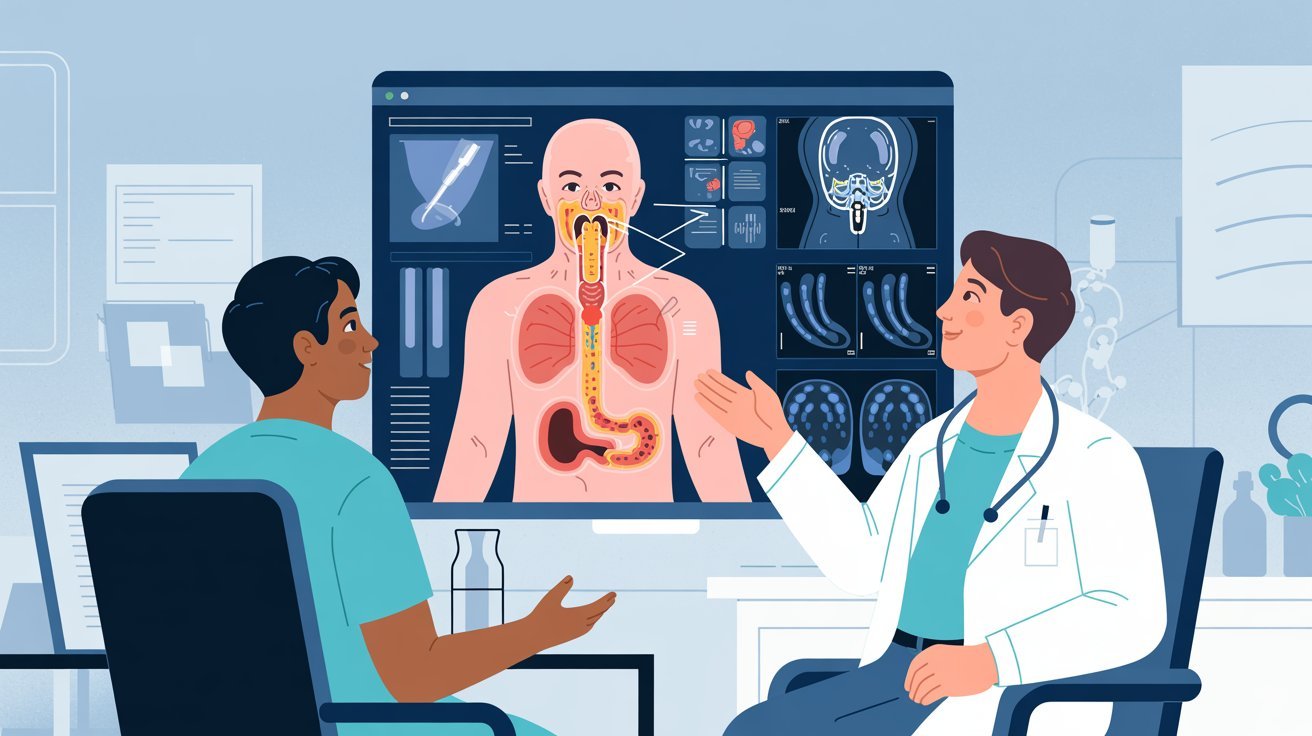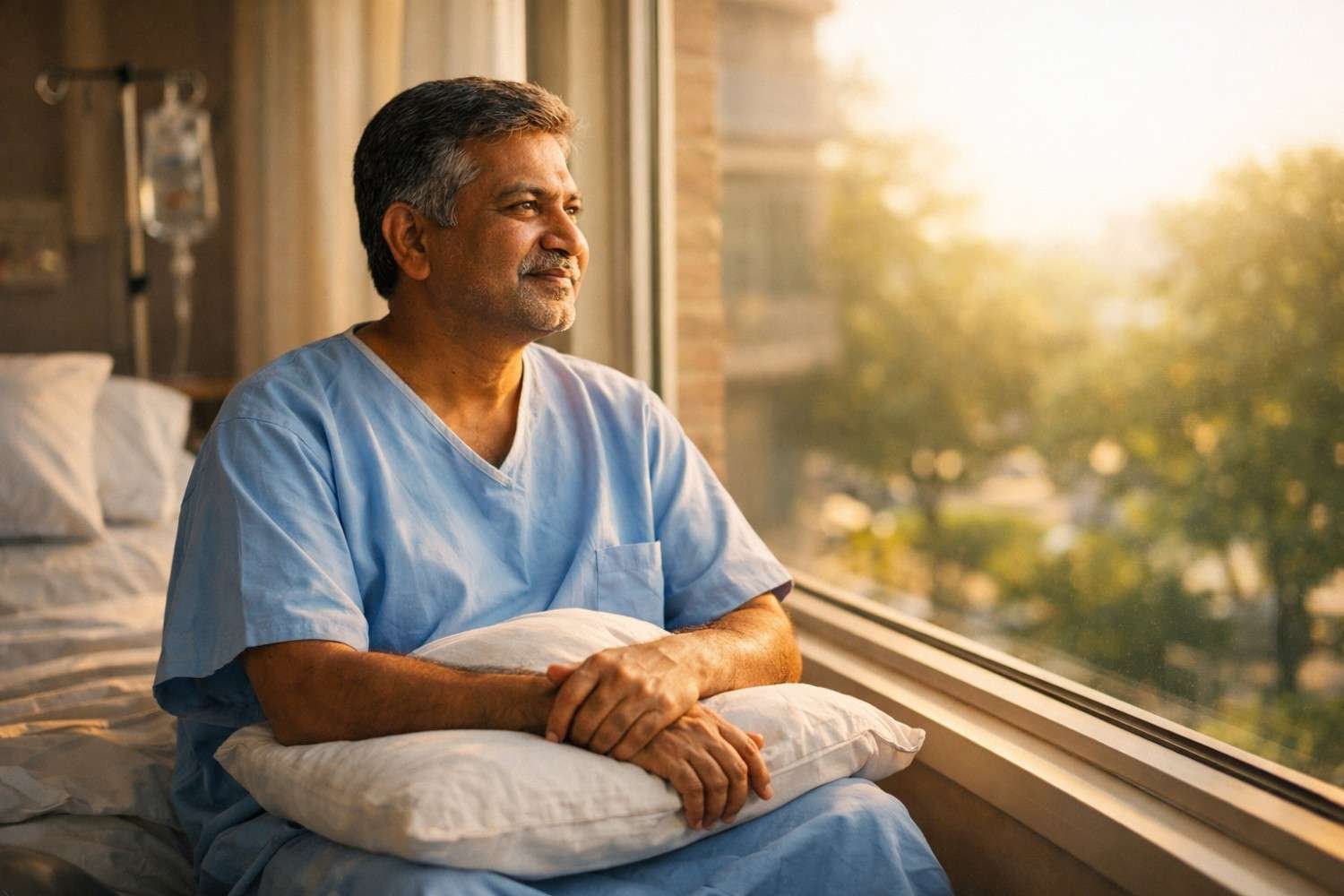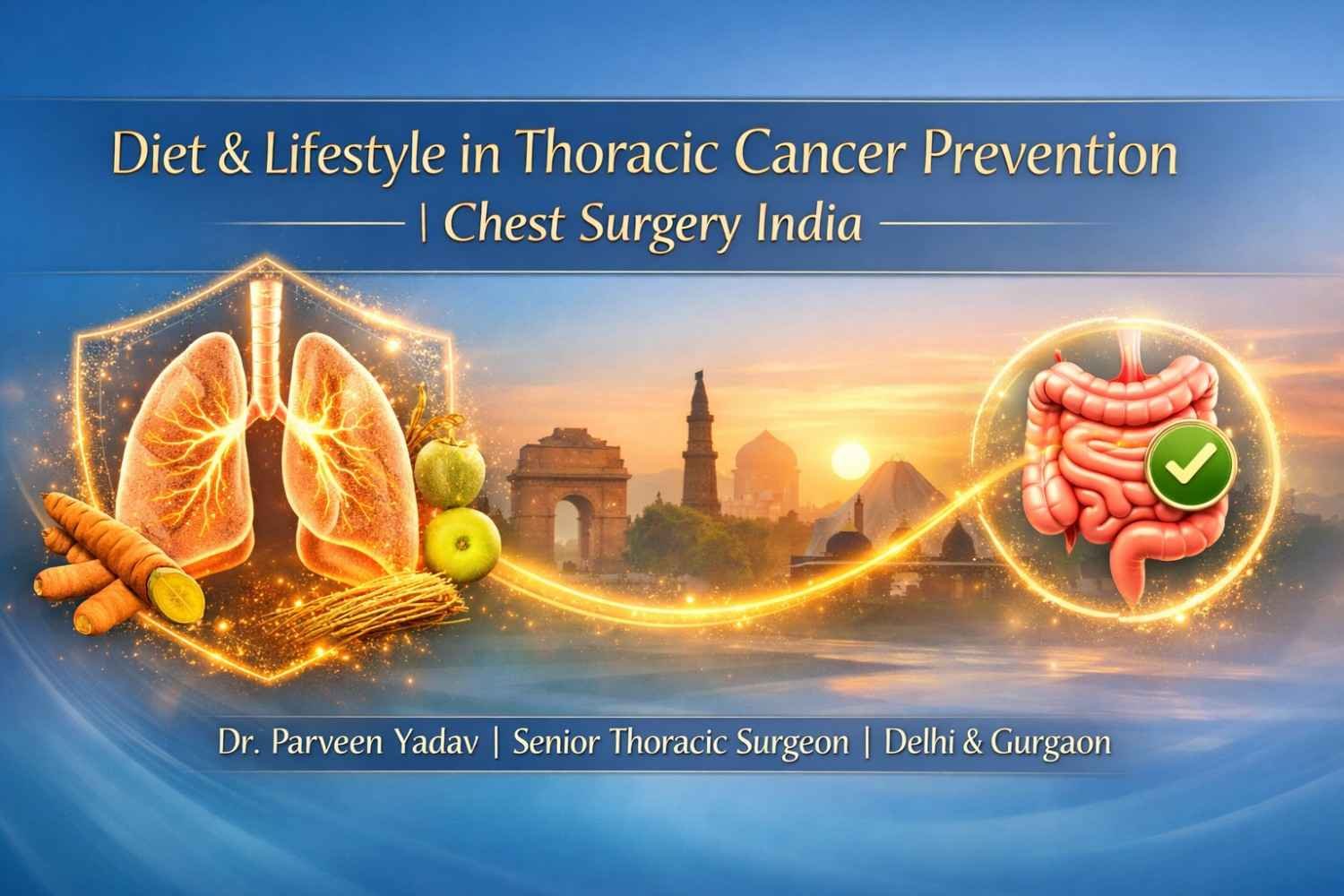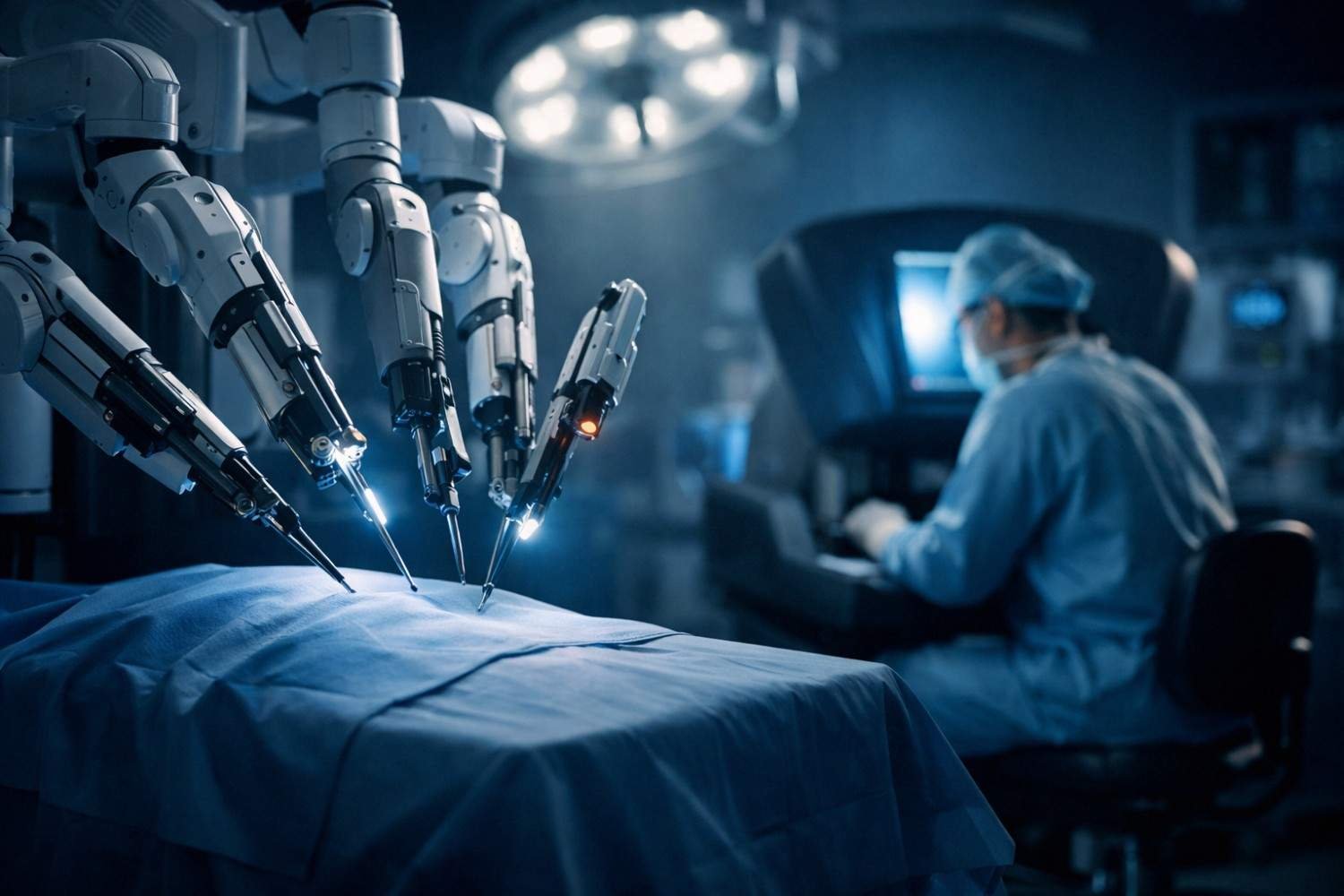

In recent years, esophageal cancer has become more common in India, especially in urban areas like Gurgaon and NCR. While the condition can be severe, early diagnosis can make a major difference in treatment results and survival rates. Many patients delay seeing a doctor due to fear, confusion, or lack of awareness. However, knowing how esophageal cancer is diagnosed can reduce anxiety and encourage timely medical help.
At Chest Surgery India, led by Dr. Parveen Yadav, patients receive expert evaluation using the latest tools and technology. Whether you are experiencing symptoms or seeking a second opinion, the center is known for its patient-first approach and accurate, minimally invasive diagnostics.
Understanding how esophageal cancer is diagnosed is the first step toward getting the right care at the right time. In this blog, we’ll explain the tests, procedures, and steps involved so you know what to expect and when to take action.
Many people ignore the early signs of esophageal cancer, thinking it’s just a minor problem. But when symptoms don’t go away or get worse, it’s time to talk to a specialist. Identifying the signs of esophageal cancer early can lead to faster diagnosis and better results.
Once you visit a specialist for suspected esophageal cancer, the diagnosis involves a step-by-step process. The goal is to confirm whether cancer is present, identify its type, stage, and decide the best treatment plan. Let’s walk through the tests and procedures in detail.
The first step is a clinical consultation where the doctor listens to your symptoms and medical history. A physical examination may be done to check for general health, weight loss, signs of anemia, or swelling in lymph nodes.
At Chest Surgery India, consultations are handled with care and empathy. The focus is on understanding each patient’s case, not rushing the process.
Imaging tests for esophageal cancer are used to get a visual of the tumor and see if it has spread to other parts of the body.
Barium Swallow (Esophagram)
CT Scan (Computed Tomography)
PET Scan (Positron Emission Tomography)
MRI Scan
These imaging tests are crucial for mapping out the tumor and planning further steps like endoscopy for esophageal cancer or biopsy.
If the imaging shows something suspicious, the next step is to directly look inside the esophagus and collect tissue samples.
Upper Endoscopy (EGD - Esophagogastroduodenoscopy)
Endoscopic Ultrasound (EUS)
Biopsy for Esophageal Cancer Diagnosis
Cytology Techniques
A biopsy is the most important test to confirm cancer and start the treatment journey.
Once cancer is confirmed, doctors need to know how advanced it is. This process is called staging.
A combination of CT, PET scans, endoscopy, and biopsy helps in accurate staging.
Early detection of esophageal cancer can be life-saving. When caught in the initial stages, treatment options are more effective, less invasive, and offer a better quality of life. Unfortunately, many cases in India are diagnosed late due to symptom neglect or lack of awareness.
Getting diagnosed with a serious condition like esophageal cancer can feel overwhelming—but it doesn’t have to be. With the right support, timely diagnosis, and expert guidance, it becomes easier to take confident steps toward treatment and recovery.
At Chest Surgery India, led by Dr. Parveen Yadav, we combine cutting-edge diagnostics, a multidisciplinary approach, and compassionate patient care to ensure that every individual gets the attention they deserve. From your first consultation to staging and treatment planning, our goal is to make the process transparent, painless, and reassuring.
If you or a loved one is showing signs of esophageal cancer or simply want to get checked, don’t wait. Early detection saves lives, and we’re here to help you every step of the way.
Ready to take control of your health?
Schedule a consultation with Dr. Parveen Yadav at Chest Surgery India for advanced esophageal cancer diagnostics in Gurgaon.
1. How long does an endoscopy take?
An upper endoscopy usually takes 15 to 30 minutes. It’s a safe procedure done under mild sedation. Most patients go home the same day.
2. Are esophageal cancer tests painful?
Not at all. Most tests like CT scans, PET scans, and barium swallow are non-invasive. Even endoscopy is done with sedation to ensure you don’t feel pain. Some mild throat discomfort may happen afterward.
3. What is the role of a biopsy in esophageal cancer diagnosis?
A biopsy confirms the presence of cancer. Without it, the diagnosis remains incomplete. The sample also tells us what type of cancer cells are present, which helps in selecting the right treatment.
4. Can I get a second opinion at Chest Surgery India?
Absolutely. We welcome patients seeking second opinions for clarity and confidence. Our team will review your reports and provide honest, expert advice.
5. What makes Chest Surgery India’s diagnostic approach unique?

18+ Yrs Exp | 5,700+ Thoracic & Robotic Cancer Surgeries
Dr. Parveen Yadav is a Director and Senior Consultant in Thoracic and Surgical Oncology, specializing in minimally invasive and robotic lung and esophageal surgeries, with advanced training from AIIMS and Tata Memorial Hospital.
View Full Profile Pain After Thoracic Surgery: Tips for Smooth Recovery
Pain After Thoracic Surgery: Tips for Smooth Recovery
 Diet & Lifestyle for Thoracic Cancer Prevention | Dr. Parveen Yadav
Diet & Lifestyle for Thoracic Cancer Prevention | Dr. Parveen Yadav
 Robotic Thoracic Surgery: How Da Vinci Technology is Revolutionizing Chest Procedures
Robotic Thoracic Surgery: How Da Vinci Technology is Revolutionizing Chest Procedures
Struggling with pain after chest surgery? Dr. Parveen Yadav shares expert recovery tips, causes of shoulder pain, PTPS signs, and what your discharge sheet won't tell you.
Discover how diet, breathing exercises & daily habits help prevent and recover from thoracic cancer. Expert insights from Dr. Parveen Yadav, Chest Surgery India
Discover how Da Vinci robotic surgery is transforming chest procedures in Gurgaon. Less pain, faster recovery & expert care by a certified thoracic surgeon
Copyright 2026 © Dr .Parveen Yadav all rights reserved.
Proudly Scaled by Public Media Solution!